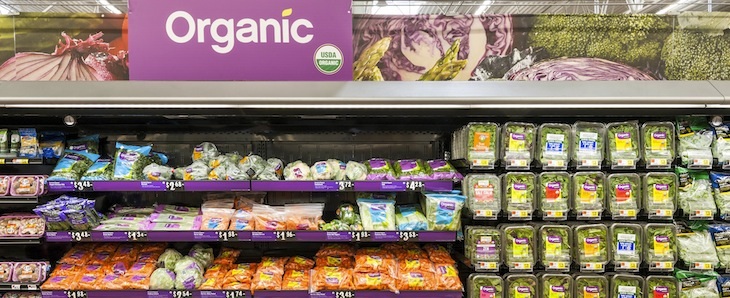Study suggests consumers are polygamous with grocery shopping
by February 12, 2018 12:53 pm 229 views

A study conducted by researchers from the University of Washington in St. Louis indicates a majority of consumers are polygamous when choosing the stores they regularly shop.
The study evaluated more than $1 million worth of transactions over a 53-week period taking place at 14 major and regional grocery chains. The report shows consumers chose certain retailers for particular categories regardless of whether they are loyalty members at other retailers.
More than half of shoppers in the survey visited an average of five to seven stores during the year, and 83% regularly shopped between four and nine chain stores over the year. While shoppers are not loyal to just one store, about 40% of their annual shopping basket is coming from their “favorite” store.
The report indicates store loyalty among shoppers relates to location, bargain opportunities and brand affinity at the surface level. But when taking a longer and deeper look, P.B. “Seethu” Seetharaman, one of three report authors, said shoppers are not as loyal as once thought.
“Clearly people are polygamous … shopping on average at six grocery stores in large urban areas,” he noted.
The research also took into account family size and household income and those impacts on shopping patterns. As a family’s income increases so do loyalty to Costco whereas larger families are more loyal to Walmart.
The study looked at 10 product categories that shoppers in the survey toward specific retailers. Following are the top category with the highest attractiveness for shoppers at certain retailers.
• Albertsons: frozen fruit
• Costco: mouthwash
• IGA: flour/meal
• Safeway: frozen fruit
• Sam’s Club: frozen seafood
• Walmart: pies and cakes
The study also revealed consumers were most interested in price consistency with categories like peanut butter, pet supplies refrigerated meat and poultry, toilet tissue and dental supplies as well as protein bars and other snack items.
The report also states as a household’s budget increases for certain food and consumable categories the loyalty to Sam’s Club and Costco also increases. While there are similarities between Sam’s Club and Costco, shoppers are loyal to those chains when it comes different categories.
Following are the top five categories for each of these retailers in terms of shopper loyalty.
Costco: mouthwash, English muffins, moist towelettes, feminine hygiene products, snack foods
Sam’s Club: frozen seafood, fabric softener, baking nuts, laundry detergent, food and trash bags
Walmart, a sister company and competitor to Sam’s Club, had more food category loyalties in the top five among shoppers surveyed. The categories were pies and cakes, refrigerated poultry, foils/food wrap, frozen fruit and flour/meal.
Researchers Seetharaman, Qin Zhang and Manish Ganwar, noted in the study retailers can’t assume their shopper base is loyal because the data indicates otherwise. The study also enables retailers to make decisions on how to employ merchandising programs of different types and various levels which can be customized at the category level to improve overall store patronage. They said viewing loyalty at the category level can likely help managers boost overall store performance through enhanced patronage.
